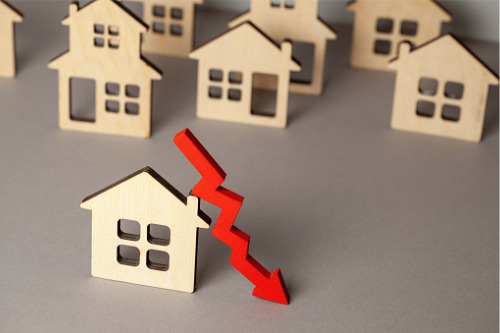Canada's housing starts are feeling the effects of a languid economic recovery

Amid a tepid pace of economic recovery, Canadian housing starts have seen a significant 20% month-over-month decline, according to the Canada Mortgage and Housing Corporation.
As of the end of September, the seasonally adjusted annual rate of housing starts nationwide stood at 208,980 units, down from the 261,547 level in August.
The rate was also far below the earlier predictions of 240,000 starts in September, according to financial analytics firm Refinitiv. The six-month moving average of the monthly seasonally adjusted annual rates of housing inched up to 214,647 units, from 212,609 in August.
Urban starts declined by 21.1% to 195,909. This was largely due to social distancing measures leading to much slower construction of apartments, condos, and other multiple-unit housing, with starts falling by 27% to 146,005. Meanwhile, single-detached urban starts had a modest 3.4% uptick to 49,904 units.
Slower economic growth and muted activity across the board is expected to last for the next several years, with the grimmest predictions estimating a post-pandemic recovery period of as much as a decade.
Year-end GDP might end up 6.3% weaker than the level seen prior to the coronavirus outbreak, Capital Economics said recently. Economic growth will hover around an average of 1.5% annually until 2030 or so – noticeably weaker than the 1.8% long-term average seen over the last few years.
“Our forecast for a 5.5% rebound in 2021 implies that it will remain below its pre-virus level until early 2022,” said Stephen Brown, senior Canada economist at Capital Economics. “Against that backdrop, we expect the federal budget deficit to remain wide and think the Bank of Canada will continue its asset purchases for at least another 12 months... “High private-sector (business and consumer) debt is likely to hold back productivity growth in the coming decade relative to that in the US.”


